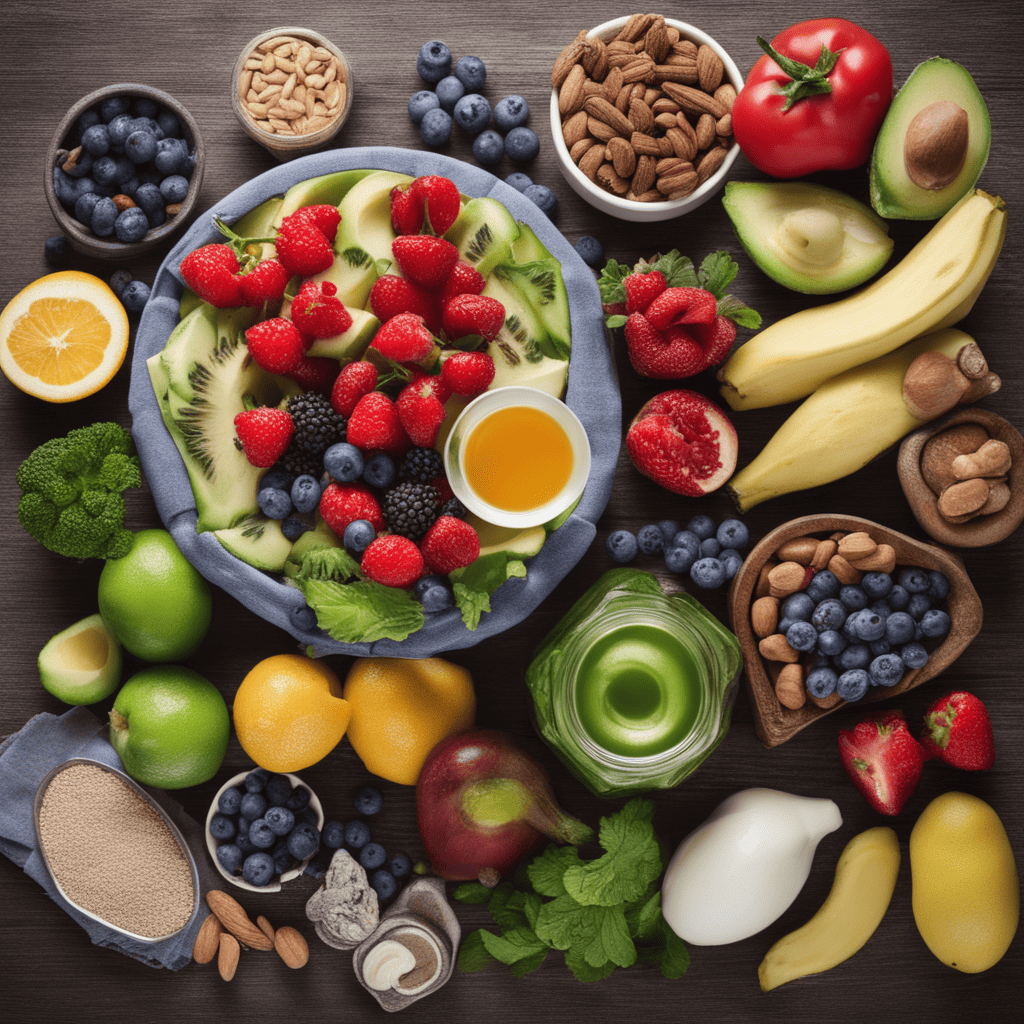- Introduction to Nutrition Tips
- Importance of nutrition for overall health.
- Overview of key nutrition tips.
- Eating a Balanced Diet
- Importance of variety and moderation.
- Emphasizing fruits, vegetables, whole grains, and lean proteins.
- Hydration
- Importance of staying hydrated.
- Tips for increasing water intake.
- Portion Control
- Understanding portion sizes.
- Strategies for managing portion control.
- Mindful Eating
- Importance of mindful eating.
- Techniques for practicing mindfulness during meals.
- Meal Planning and Preparation
- Benefits of meal planning.
- Tips for meal prepping and batch cooking.
NUTRITION TIPS
| Heading | Subheading |
|---|---|
| Eating a Balanced Diet | Importance of Variety |
| Emphasis on Nutrient-Rich Foods | |
| Hydration | Staying Hydrated |
| Tips for Increasing Water Intake | |
| Portion Control | Understanding Portion Sizes |
| Strategies for Managing Portions | |
| Meal Prepping | Being Present During Meals |
| Listening to Hunger Cues | |
| Meal Planning & Prep | Benefits of Meal Planning |
| Tips for Meal Prepping |
NUTRITION TIPS: Enhancing Your Health Through Smart Eating Choices
Introduction to Nutrition Tips
Maintaining a balanced and nutritious diet is fundamental for overall health and well-being. By incorporating simple yet effective nutrition tips into your daily routine, you can optimize your diet and support your body’s natural functions. Let’s explore some key strategies for making healthier eating choices.
Eating a Balanced Diet
Importance of Variety
Eating a diverse range of foods ensures that you obtain a wide spectrum of essential nutrients, vitamins, and minerals necessary for optimal health. Aim to incorporate a colorful array of fruits, vegetables, whole grains, lean proteins, and healthy fats into your meals to provide your body with the nourishment it needs.
Emphasis on Nutrient-Rich Foods
Focus on choosing nutrient-dense foods that offer maximum nutritional benefits with minimal calories. Opt for whole, minimally processed foods over highly processed and refined options. Incorporating nutrient-rich foods such as leafy greens, berries, nuts, seeds, legumes, and lean meats can help fuel your body and support overall health.

Hydration
Staying Hydrated
Hydration is essential for maintaining proper bodily functions, supporting digestion, regulating body temperature, and promoting overall health. Make it a habit to drink an adequate amount of water throughout the day to stay hydrated. Aim for at least eight glasses of water daily, and adjust your intake based on factors such as activity level, climate, and personal hydration needs.
Tips for Increasing Water Intake
To increase your water intake, carry a reusable water bottle with you wherever you go as a reminder to stay hydrated. Infuse your water with fresh fruits, herbs, or cucumbers for added flavor and enjoyment. Set specific goals for water consumption throughout the day and track your progress to ensure you meet your hydration needs.
Portion Control
Understanding Portion Sizes
Maintaining proper portion control is crucial for managing calorie intake and preventing overeating. Familiarize yourself with standard portion sizes for different food groups, and use measuring tools or visual cues to gauge appropriate serving sizes. Avoid eating straight from the package and opt for smaller plates and bowls to help control portion sizes.
Strategies for Managing Portions
Practice mindful eating by paying attention to hunger and fullness cues and stopping eating when you feel satisfied, rather than overly full. Chew your food slowly and savor each bite to enhance satisfaction and digestion. Be mindful of portion distortion at restaurants and consider sharing meals or opting for smaller portions when dining out.
Mindful Eating
Being Present During Meals
Mindful eating involves being fully present and engaged during mealtime, focusing on the sensory experience of eating. Avoid distractions such as electronic devices or television and savor the flavors, textures, and aromas of your food. Eating mindfully can help prevent overeating, improve digestion, and enhance your overall enjoyment of meals.
Listening to Hunger Cues
Tune into your body’s hunger and fullness signals to guide your eating decisions. Eat when you’re hungry and stop when you’re comfortably satisfied, rather than eating out of boredom, stress, or habit. Pay attention to physical hunger cues such as stomach growling, lightheartedness, or low energy levels, and respond appropriately with nourishing food choices.
Meal Planning & Preparation
Benefits of Meal Planning
Meal planning helps streamline your food choices, save time and money, and reduce stress associated with mealtime decisions. Take time to plan your meals and snacks for the week ahead, considering your schedule, dietary preferences, and nutritional goals. Batch cooking and meal prepping in advance can also make healthy eating more convenient and accessible.
Tips for Meal Prepping
Set aside dedicated time each week to plan and prepare your meals and snacks. Choose recipes that are simple, nutritious, and versatile, and consider batch cooking staple ingredients such as grains, proteins, and vegetables to use in multiple meals throughout the week. Invest in quality storage containers to keep prepared meals fresh and organized for easy grab-and-go options.
Conclusion
By incorporating these nutrition tips into your daily routine, you can take proactive steps towards improving your health and well-being. Remember to prioritize variety, moderation, and balance in your diet, and listen to your body’s cues for hunger, thirst, and satisfaction. With mindful eating habits and smart food choices, you can nourish your body and fuel your life with vitality and energy.
FAQs
- How can I make healthier food choices when dining out?
- Look for menu options that emphasize fruits, vegetables, lean proteins, and whole grains. Ask for dressings and sauces on the side, and opt for grilled, steamed, or baked dishes instead of fried or heavily processed options.
2. What are some healthy snack ideas for busy days?
- Consider snacks such as fresh fruit with nut butter, Greek yogurt with berries, raw veggies with hummus, trail mix, or whole grain crackers with cheese. Preparing snack packs in advance can help you make healthier choices on the go.
3. Is it okay to indulge in treats occasionally?
- Yes, enjoying treats in moderation is perfectly fine and can help prevent feelings of deprivation. Allow yourself to indulge in your favorite foods occasionally, but be mindful of portion sizes and frequency to maintain balance in your overall diet.
4. How can I incorporate more vegetables into my meals?
- Get creative with your vegetable choices by experimenting with different cooking methods, seasonings, and flavor combinations. Add veggies to soups, salads, stir-fries, omelets, and pasta dishes, or enjoy them raw with a flavorful dip or hummus.
5. What should I do if I experience cravings for unhealthy foods?
- Instead of giving in to cravings for sugary or high-fat foods, try satisfying your cravings with healthier alternatives such as fruit, nuts, dark chocolate, or air-popped popcorn. Distract yourself with a non-food-related activity or go for a walk to help curb cravings and reduce temptation.



